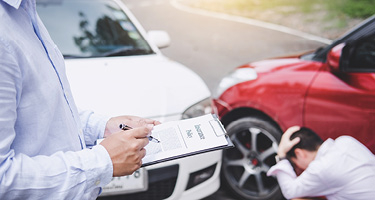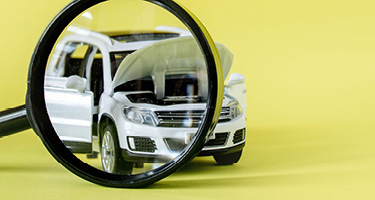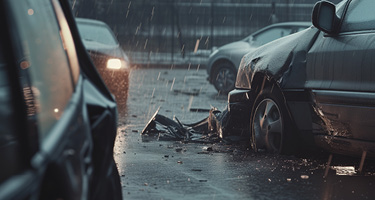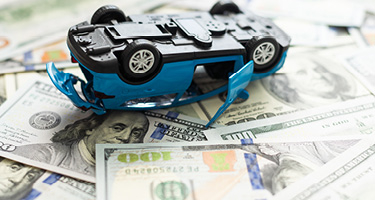Columbus, Georgia, is no stranger to car accidents. According to the Georgia Department of Transportation, over 37,000 wrecks of all types have happened since 2023. This number included over 100 fatal accidents that resulted in more than 110 deaths. Overall, more than 11,000 people were hurt to varying degrees in Columbus car wrecks during this period.
No matter how severe the harm you suffer, where your accident occurs or what other vehicles are involved, the actions you take after a Columbus car wreck matter greatly. Taking the right steps at the right time can ensure that any injuries you sustain are properly treated, your legal obligations are fulfilled and your right to compensation is protected.
Think Safety First
The first thing you should concern yourself with after a crash is your immediate safety. If you are in the roadway and there is other traffic around, consider moving to a nearby location out of the way of other vehicles. You should also move if you smell gas or oil or if you see smoke. These observations can indicate an imminent fire that you will need to ensure you are clear of.
If you are pinned in your vehicle, or if moving causes you to experience significant pain, it’s best not to move unless necessary. Instead, call for emergency help right away or ask a bystander to make the call for you. Should someone else be injured, see if you can aid that person or help them get to a safe location.
Decide Whether To Call Law Enforcement
Next, decide whether you must report your crash to the police. Georgia law requires you to contact local law enforcement as soon as possible after a collision that results in any injury, no matter how severe. Crashes that result in a fatality or more than $500 in property damage must also be reported.
If your crash only involves damage to vehicles or other property and occurs within the city limits of Columbus, you can call the Columbus Police Department’s non-emergency line at 706-653-3100. Otherwise, you can call 911 and report your location to the dispatcher. You should inform the dispatcher of any injuries or deaths that are on the scene.
Exchange Information With the Other Driver
Assuming the other driver involved in your crash did not flee the scene, you should exchange information with that other driver. This includes your name, your driver’s license information and your insurance policy information. The other driver has an obligation to give you their information as well.
However, avoid speaking about the crash itself or how it happened. Even saying things such as, “I’m sorry, I wasn’t watching where I was going,” can make it more difficult for you to obtain compensation in the future.
You should also be careful about saying that you are fine or that you do not have any injuries to further protect a potential claim. Some injuries are not always immediately apparent.
Preserve Evidence At the Scene
As minutes pass by after a crash, the accident scene begins to change. The placement of the vehicles involved in a wreck and signs and signals at the accident site can all yield important clues about why your crash happened. Take measures to preserve as much of this information as possible.
If you can safely do so, use a smartphone to take photographs of the place where the accident happened. Try to take pictures from several angles and viewpoints. Photograph the damage to your vehicle and other vehicles involved and any injuries sustained. Finally, document signs, signals, obstructions and other unique features of the crash site.
Finally, speak with any witnesses who stayed on the scene to help you. If they indicated they saw the crash happen, ask them if you can record their name and contact information. Their statements could prove useful if your compensation claim is contested.
Seek Prompt Medical Care
If an ambulance was not called to the scene of your accident, you will want to visit your doctor’s office or local emergency room on your own as soon as you are able to. The rush of adrenaline you naturally feel after a traumatic event like a car crash can mask symptoms of injuries, some of which can be serious.
Getting prompt care can be crucial to minimizing the long-term harm you suffer. Should your medical team diagnose you with any conditions or injuries, make sure that you follow their advice.
Take any medications according to your instructions, and keep all follow-up appointments. When meeting with your doctor or care team, be honest about your symptoms and how you are feeling.
Suppose that you are not diagnosed with any major injuries after your accident. Even so, you should remain vigilant for delayed signs and symptoms in the days and weeks ahead. If you notice pain that will not go away, headaches that persist despite over-the-counter medication or a symptom that significantly interferes with your daily life, visit your doctor for further evaluation.
Keep Documents Organized For Your Attorney
You will want to file and keep any documents, communications and bills regarding your accident in a secure file. Anything pertaining to the accident should find its home here so that it can be quickly retrieved. Having all your bills and invoices in one place can also help your car accident attorney in Columbus, GA evaluate your damages and the amount of compensation you could obtain.
It’s important not to put off visiting an attorney about your legal rights. You only have a limited amount of time to seek compensation, no matter how severe your injuries are. Your attorney can work on pursuing your legal rights while you are focused on your recovery.
Protecting Your Rights After a Car Accident in Columbus, Georgia
Car accidents can happen to anyone, anywhere—and Georgia is no exception. When you know the key steps to take after experiencing a crash, you can ensure you are better able to protect both your health and your legal rights. Contact a Columbus car accident attorney for guidance.
































